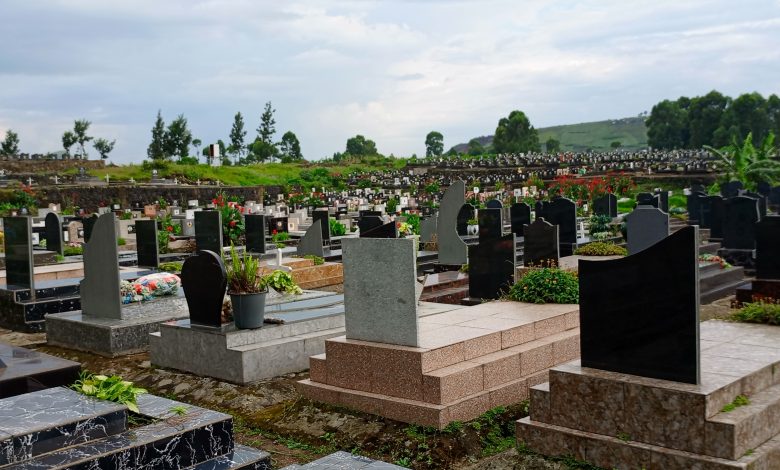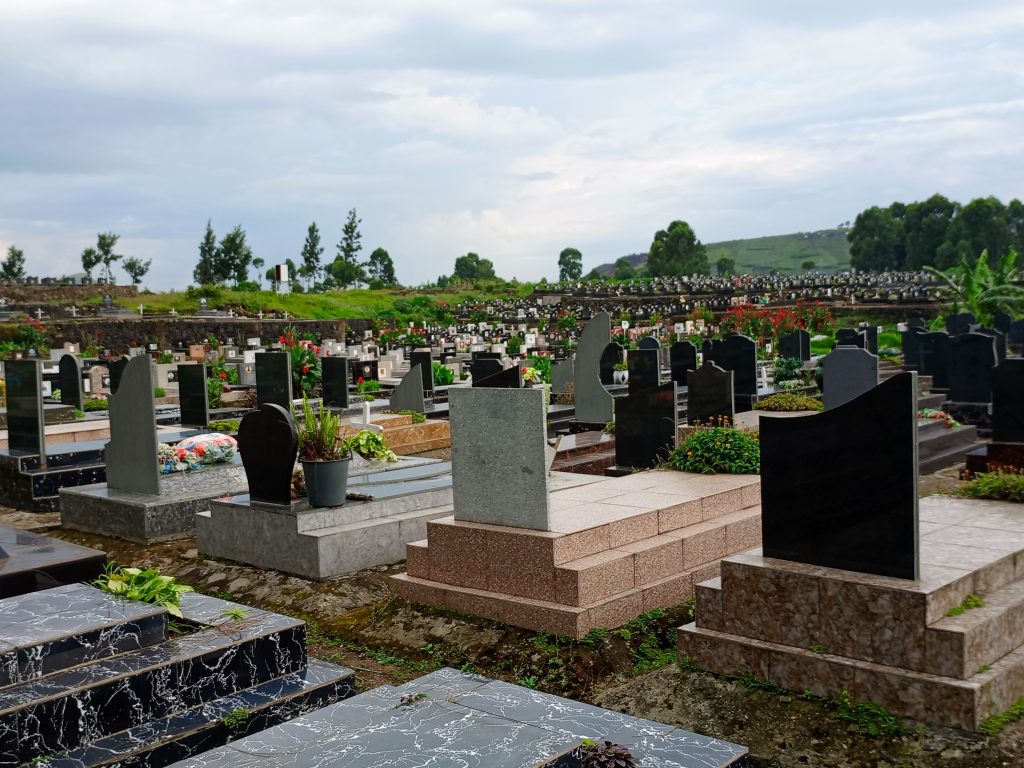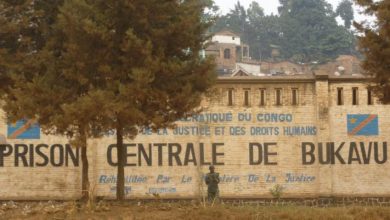The war in Eastern of DRC impeaches dead to rest in paradise.

By Prosper HERI NGORORA
Goma, 7 March 2024 -Since November 2021, M23 rebels launched attacks against Congolese army in North-Kivu. This Rwanda-backed group has seized many territories, putting pressure of Congolese government to negotiate with them. People are obliged to bury their loved ones who passed on in areas around Goma, instead of burying them in the villages they come from due to war in those corners of DRC.
It’s has been more than 2 years since heavy fights are reported in the East of DRC, the second-large country in Africa and one of the richest countries in the world in mineral wealth.
The Congolese army FARDC is dealing with M23 rebels, whom are directly supported by Kigali regime according to United Nations reports.
Many villages in areas like Masisi, Rutshuru and Nyiragongo are under control of M23, causing people to run away from their homes and look for areas supposed being more secured.
People who’re driven from their owns are in displaced-camps around Goma such as Minova, Rusayu, Bulengo, Kanyaruchinya, Mugunga and so on.
People are dying far from their villages and initially they wanted to be buried in the areas where they were born but the situation takes a turn for worse.
It is not possible to be ritualistically interred in grave so far for dozens of hundreds who are dying every day in Goma and in surrounding areas.
“In October 2023, my aunt died aged 45 in Bulengo camps, West Southside of Goma. She wanted us to bury her in the village she came from. But as fights were underway, it was not easy to execute her last word. Finally, my family decided to bury her at Makao graveyard, in Nyiragongo territory, North Goma” tells Mr Jacques Amani who was bereaved in 2023.
Pilgrims’ souls are wandering here and there, waiting war to end and then rest in peaceful conditions in hereafter.
They are still deprived the paradise they wanted for so long as they were alive here on earth according to their works.

Pharaon Imotsep, a pan Africanist based in Goma, DRC believes that a dead person is just one who lived on earth and the end of the day he left it.
As for him, dead persons do deserve respect for all that they have done once in live here in earth and they play a key role in life of living people.
He highlights that in Africa, people never died. They are in trees, in air we breathe, in water and anywhere. It’s very important to protect them and to bury them in their respective villages, the place of vibration.
“Where we were born is a natural maternity. Some one who is born has a genealogy. Child has parents, grandparents, forebears and comes from elsewhere. We have an obligational relation with where he was born. It’s in his origin village where were formed materials which made his body” reveals Pharaon Imotsep.
According to many African cultures, the spirits of the dead are believed to linger around and influence the world of the living.
According to Wikipedia, in most Bantu cultures there are legends and myths about the origin of death.
According to myths a chameleon was sent to announce to men that they would never die. The chameleon went on his mission, but he walked slowly and stopped along the way to eat and after chameleon left some time after, a lizard went to announce to men that they would die.
Some people do not exclude the idea of venerating dead people as they believe they communicate with them in different ways such as in dreams, through seers and the list goes on and on.
“Sometimes, I go where my mum was buried to pay tribute to her and try to reconnect with all for all that she has done for me and all my nuclear family” says Ephrem Chiruza, a Goma resident.
For Pharaon Imotsep, it’s most important to be buried in his village to get new energy and to reconnect with those who came years ago.
As for him, people can’t talk about them without making reference to where they came from, that’s where their roots are, their core.
That’s why once he is born there, have to be buried there to vibrate and reincarnate for future generations. It’s Universal.
This point of view is supported by Mr Justin Tabaro, who’s sorrowed for not burying his love one in Beni territory, where he was born.
“Since M23 launched attacks, we can’t bury our relatives as they would rather. We are guided by our traditions and customs. I’m from Beni and my grandmother didn’t make it here in Goma, it was not easy to reach that region because of war. That is a problem” he emphasizes.
Mr Justin says that by violating customs due to war, future generations are exposed by other kind of misfortune, demanding the end of war so that they might accomplish the last wishes of their dead.



